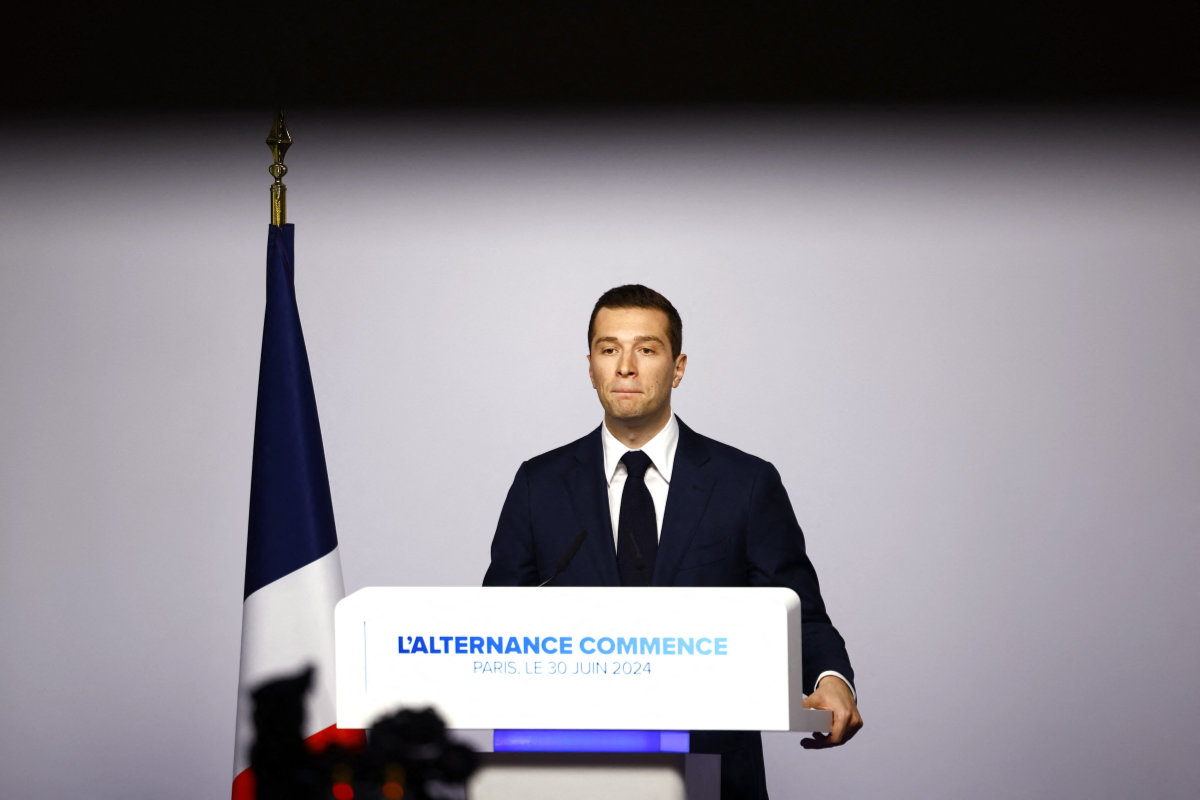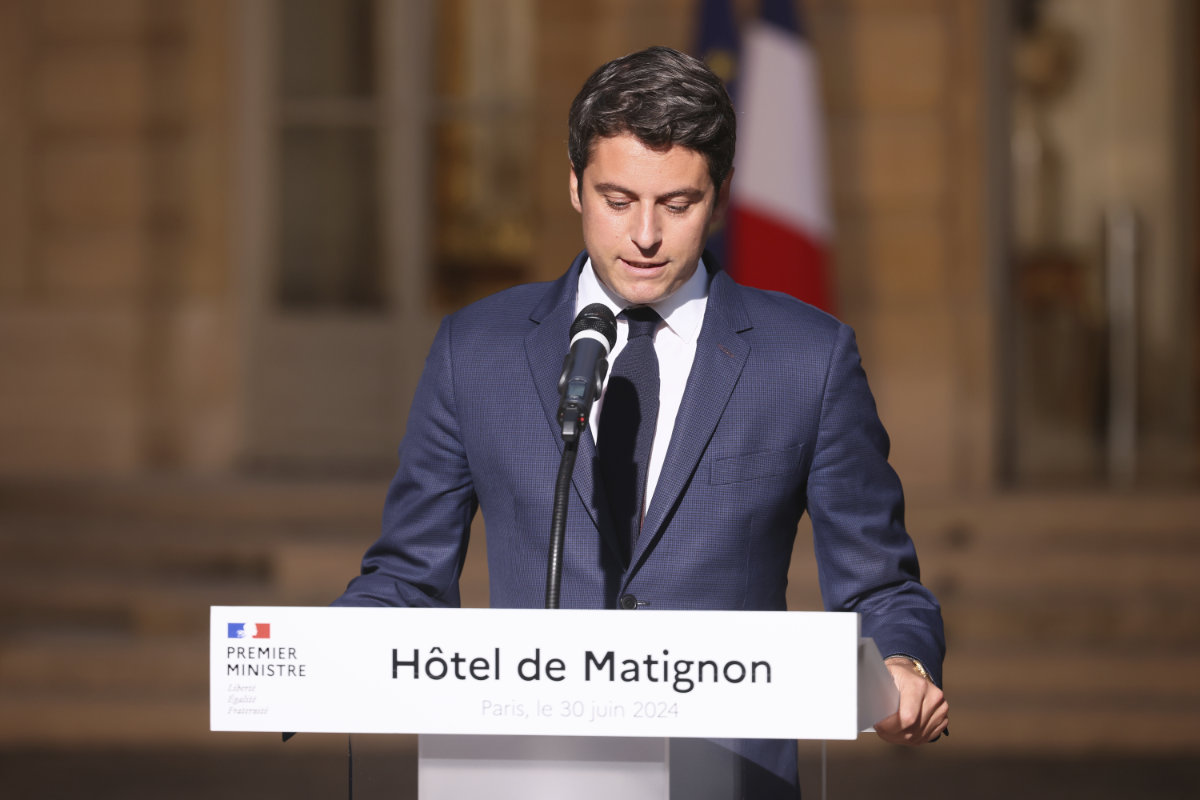WASHINGTON/TOKYO/SEOUL: Donald Trump’s allies are assuring officials in Japan and South Korea that the Republican presidential candidate will support a Biden-era effort to deepen three-way ties aimed at countering China and North Korea, five people familiar with the conversations said.
In conversations over the past weeks, policy advisers with Trump’s ear have delivered this message to officials in Seoul and Tokyo: if Trump takes office again, the ex-US president will support the two capitals’ work to warm once-frigid ties and advance military, economic and diplomatic cooperation to ease global tensions, the people said.
The conversations were described to Reuters by Republicans and officials from each of the Asian countries, several of whom were directly involved.
The previously unreported push is part of an effort by Trump’s allies to convince Washington’s closest friends in Asia that his smash-mouth approach to traditional alliances ends at the shores of the Indo-Pacific.
There, the US faces ramped-up tensions over Taiwan and the South China Sea, a new Chinese partnership with Russia, and Russian President Vladimir Putin’s courtship of North Korea.
“I reassured them that the alliance will be strong, that Trump recognizes we have to work closely with our allies to defend their interests,” said Fred Fleitz, a former chief of staff in Trump’s National Security Council, who traveled to Japan and met officials there including national security adviser Takeo Akiba this month.
These conversations carry extra weight after Biden’s disastrous debate performance on Thursday, which may push undecided voters toward Trump and has spurred calls for him to step aside in the 2024 race.
Trump allies have floated other foreign policy plans if he wins in November, including a Ukraine peace plan and one to restructure NATO funding. The reassurances to Japan and South Korea go further because they include direct talks with foreign officials. In May, former Trump foreign policy officials met Israel’s Prime Minister Benjamin Netanyahu.
The Trump campaign has not confirmed whether he would accept these proposals.
“No one has the authority to speak to a foreign government and make promises on behalf of President Donald Trump,” said Chris LaCivita, senior adviser to the Trump campaign, when asked about the assurances. The policy section of the Trump campaign’s website does not address the topic.
Fleitz said he was not speaking for Trump and instead offering an assessment based on his experience with the candidate. He said the US, Japan and South Korea would likely work together to counter China and North Korea under another Trump term.
Dozens of meetings have been taken or scheduled at the highest levels of the Japanese and South Korean governments with right-wing think tanks, such as America First Policy Institute, the Heritage Foundation and the Hudson Institute, known to be planning policy Trump could deploy in 2025, sources said.
One Asian official briefed on the recent regional meetings with Trump allies said their government was taking the meetings seriously and considered them a plausible representation of where Trump may stand.
Trump second term plans
The conversations show the serious, early effort by Trump allies to sketch policy priorities for a second Trump presidency months before the 2024 US election, in which Trump is leading in battleground states that could decide the race.
Trump’s 2016 election win took countries by surprise and left them scrambling to understand the new president’s views as he hastily assembled White House advisers.
The consortium of conservative think tanks known as “Project 2025” making detailed plans for a second Trump presidency describe South Korea and Japan in their playbook as “critical allies” in the military, economy, diplomacy and technology.
But the playbook also calls for pushing South Korea “to take the lead in its conventional defense against North Korea,” reflecting Trump’s concern about taking on too much financial responsibility for other countries’ security. Project 2025 has said it does not speak for the Trump campaign.
Backing Biden plan
Still, the outreach by Republicans to Asia represents one narrow area of potential continuity between Trump and Biden.
The Democratic US president took over from Trump in 2021 after a bitter election campaign and has prioritized elevating traditional alliances like those Trump sometimes disparaged.
Biden encouraged South Korean President Yoon Suk Yeol and Japanese Prime Minister Fumio Kishida to work together and overcome decades of mutual suspicion and enmity.
The effort culminated in a Camp David summit between the leaders last summer that pledged new defense cooperation amid North Korean leader Kim Jong Un’s nuclear threats and Chinese President Xi Jinping’s sovereignty claims over democratically governed Taiwan.
“My view, and President Trump shares this, is the deeper we can make the economic ties between the three countries, the stronger the bonds will be,” said Senator Bill Hagerty of Tennessee, who served as ambassador to Japan in the Trump administration, remains in touch with Asian governments and is seen by some in those circles as a likely Trump second-term appointee.
Another former Trump official described the conversations as partly campaign tactics, adding that, “the main charge of the Democrats is that he abandoned friends and allies and acted alone. He’s now more careful not to give Democrats any new room for attack.”
Welcome signal
In Seoul and Tokyo, where officials are weighing a possible Trump return to office, Republican messages of solidarity have been received as a welcome signal that Trump’s Asia policy may vary from the hard-nosed approach that rankled allies from Ottawa to Brussels.
While polls show Biden and Trump in a close race, Yoon and Kishida face withering public opinion polls at home, raising the question of whether the spirit of Camp David will endure a change of leadership in any of the three countries.
South Korea’s foreign ministry said in a statement that it “is not only necessary but also natural” for the three countries to work together, and that the effort had won bipartisan support in the United States, including during the prior administration.
“Japan is following the US presidential election with interest, but is not in a position to comment on elections in third countries individually,” the country’s foreign ministry said in a statement, adding the alliance enjoys bipartisan support.
Spokespeople for the Biden campaign and the White House did not respond to a request for comment.
“I don’t see any reason why trilateral cooperation would languish at all,” said Alexander Gray, a former chief of staff of the White House National Security Council under Trump and now CEO of American Global Strategies, a Washington based think tank. “There’s a general concern, that I think is unfounded, that President Trump would abandon things that Joe Biden started and, you know, just abandon them because Joe Biden was involved in them.”


































